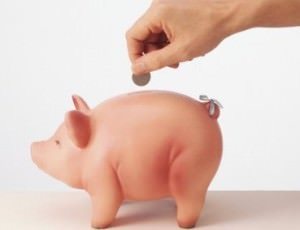Is it very easy to throw bills and charges into desk drawers, putting them off until last minute. As anyone who has had bill collectors calling throughout the day can tell you, though, that is a very dangerous practice– particularly in terms of your long-term credit rating. There are some important basics you should know, and this article will outline them. By following these simple rules, you can be fiscally responsible and take full control of your personal finances.
Fiscally Responsible & Take Control of Your Personal Finances
 Fiscally responsible, first learn how to work out your budget. Decide if you would like your budget to be weekly, monthly, bi-yearly or yearly. Most people elect to do their budget on a month-by-month basis, but if you have a very unstable or, conversely, extremely stable budget, it may benefit you to look more long-term. Add up your wages for the time period you will be budgeting for. Be sure you are looking at your net wages, with the taxes already taken out. Pay yourself first! Set aside 5% of each paycheck to be placed in a savings account. This account should only be touched in the event of an emergency. Some banks will allow you to set aside a certain amount of each paycheck into a savings account. If that is the case for your bank, set aside a dollar amount roughly equal to 5% of each check into the account. Then, pay for mandatory bills– the things you cannot live without. Water, heat, electric, sewage, et cetera. Then buy food, fuel, and pay extraneous bills (cell phone, cable, et cetera). What remains is what you should spend on entertainment, unnecessary clothing, charity, et cetera.
Fiscally responsible, first learn how to work out your budget. Decide if you would like your budget to be weekly, monthly, bi-yearly or yearly. Most people elect to do their budget on a month-by-month basis, but if you have a very unstable or, conversely, extremely stable budget, it may benefit you to look more long-term. Add up your wages for the time period you will be budgeting for. Be sure you are looking at your net wages, with the taxes already taken out. Pay yourself first! Set aside 5% of each paycheck to be placed in a savings account. This account should only be touched in the event of an emergency. Some banks will allow you to set aside a certain amount of each paycheck into a savings account. If that is the case for your bank, set aside a dollar amount roughly equal to 5% of each check into the account. Then, pay for mandatory bills– the things you cannot live without. Water, heat, electric, sewage, et cetera. Then buy food, fuel, and pay extraneous bills (cell phone, cable, et cetera). What remains is what you should spend on entertainment, unnecessary clothing, charity, et cetera.
Learn how to optimize you credit card usage. Pick cards with low interest rates, and pay off more than the minimum amount when the bill comes. Don’t buy more than you can realistically pay back!
When looking for a savings account, choose a financial institution that offers high or competitive fixed interest rates. A credit union is ideal, but savings accounts through banks will also serve their purpose. Set aside a regular amount to be transferred from your checking account into your savings account.
To deal with your current debts, consider cutting back on expenses like clothing and entertainment. You can also consider getting a second job, if you have time, to cover the cost of your debts.
Consider what type of investing is ideal for you. You have many options, and if you are interested, an accountant, stock broker, or financial adviser can help you find the best options in your area. Be sure to have your debts in check before you invest any money!
When selecting a bank, choose a bank that offers few fees, is in your area and will give you good interest rates on loans, investments, and savings/IRA accounts.
Taking control of personal finances and fiscally responsible may initially seem to be very daunting, but is in fact a very rewarding process. By controlling your finances and being fiscally responsible, you are granted the opportunity of seeing your debts shrink and savings grow. By following these guidelines, you will find your fiscally responsible growing, and giving you stability in life.
